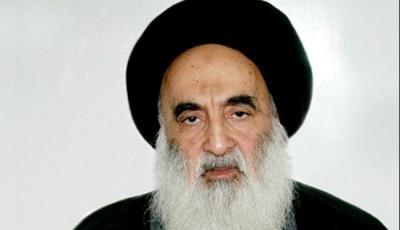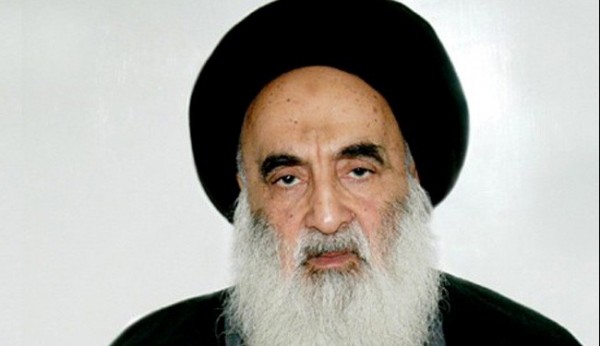
Iraq’s top Shiite cleric Grand Ayatollah Ali al-Sistani called for controversial premier Nuri al-Maliki to be replaced with a more conciliatory figure, according to a letter released on Wednesday.
“I see the need to speed up the selection of a new prime minister,” Sistani said in the handwritten letter addressed to leaders of Maliki’s Dawa party, which was released by his office more than a month after it was written.
The new premier should be someone who “has broad national acceptance and is able to work together with the political leaders of the other (ethnic and religious) components to save the country from the dangers of terrorism, sectarian war and division,” he said.
The call by Sistani, who is revered by millions, will carry enormous weight with the country’s Shiite Arab majority.
The release of the letter came as Maliki, the incumbent prime minister who has been determined to secure a third term, continued to defy the country’s president and international pressure, insisting it would take a federal court ruling for him to quit.
“I confirm that the government will continue and there will not be a replacement for it without a decision from the federal court,” Maliki said.
The two-term premier has accused President Fuad Masum of violating the constitution by approving the nomination of Haidar al-Abadi, another Dawa member, instead of him, and vowed to take legal action.
But even before the release of Sistani’s letter, analysts said Maliki had lost too much backing to stay in power.
International support has poured in for Abadi, including from both Tehran and Washington, the two main foreign power-brokers in Iraq.
Maliki warned Sistani
Last month Maliki sent a warning text message to the office of Sistani according to a report by Al-Monitor in which he told him : ” I ask you, as prime minister who was elected for two terms, as the leader of the largest coalition, and as the [politician] who won the highest number of votes in the third session, to clarify your stance and end your involvement in the political process and the choosing of the prime minister. [I ask you] to limit your role to the provision of religious and moral guidance to your followers and leave politics to politicians. Iraq is going through a delicate phase in its political and security history and I cannot, amid these circumstances, give up on my national duty to protect the unity of Iraq and its people and defend the rights of those who voted for me.”
Yahoo/AFP/ Al Monitor


Leave a Reply
You must be logged in to post a comment.